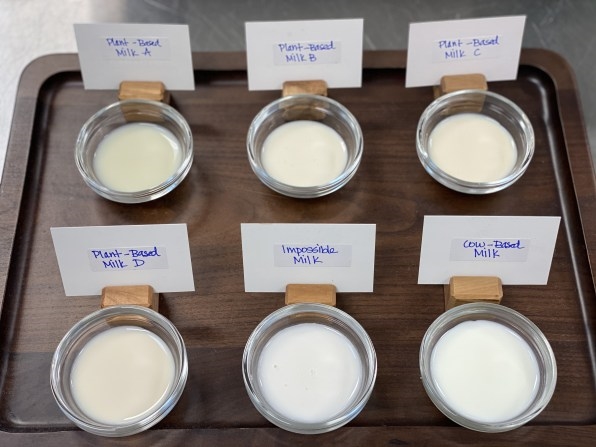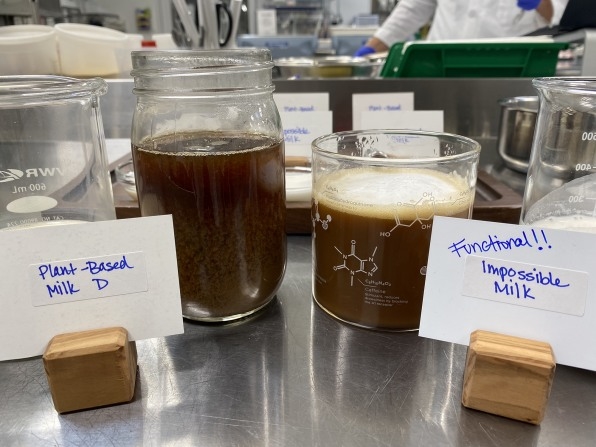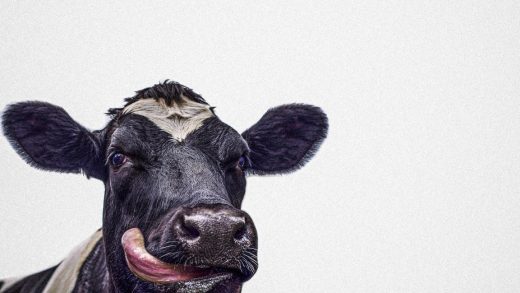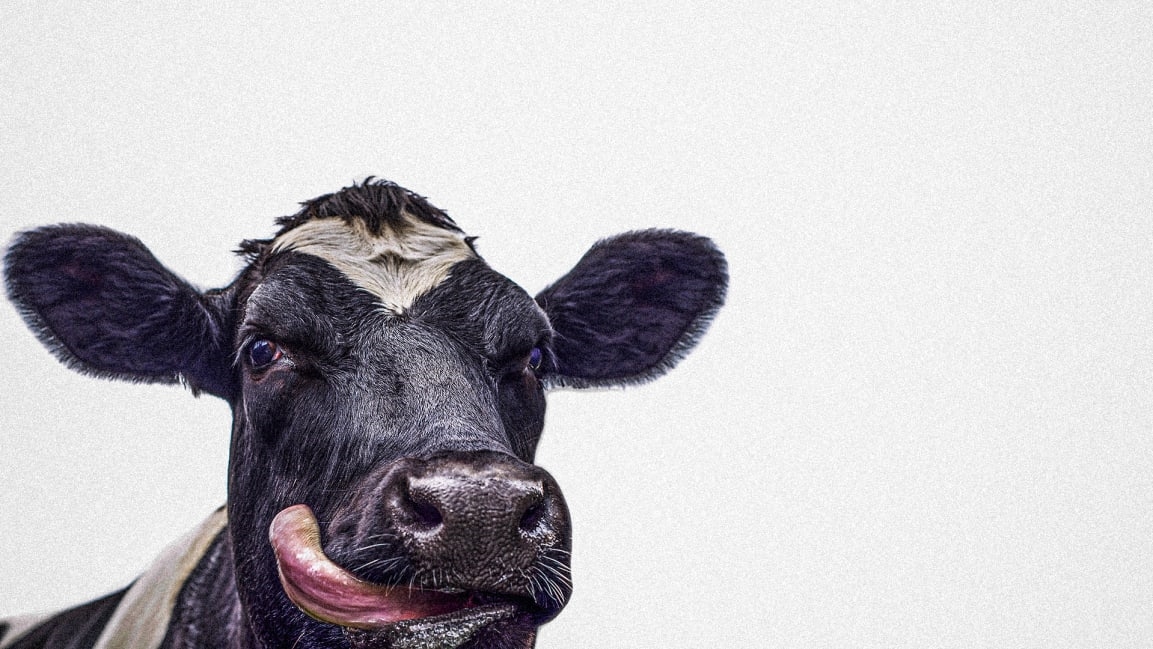Impossible Foods is branching out from burgers. Next up: Milk
There’s already almond, oat, cashew, and soy plant-based milks on the market, but soon, there might also be Impossible Milk. The makers of the meatless burger that “bleeds” are working on a plant-based milk that tastes and acts like it comes from a cow.
The company says it already has an Impossible Milk prototype, developed in its lab in Redwood City, California, that has a creamy texture and can be blended into hot beverages without curdling. Replicating dairy without the use of cows is another way Impossible is trying to curb our reliance on animal agriculture, which is the leading cause of deforestation, biodiversity loss, and water and air pollution, and accounts for about 14.5% of global human-caused greenhouse gas emissions.

There are some 9.3 million dairy cows in the U.S., according to the American Farm Bureau Federation, but dairy milk consumption and sales have been dropping as plant-based alternatives gain popularity. According to the Dairy Farmers of America, net sales fell by $1.1 billion, or 7.5%, between 2017 and 2018, while the market for plant-based milks keeps growing—and raking in investment dollars. Producing a glass of cow’s milk causes three times more greenhouse gas emissions than producing a glass of rice, soy, oat, or almond milk, according to a University of Oxford study.
There aren’t yet specific plans to launch Impossible Milk, but the company is continuing its research, as well as working on plant-based alternatives to seafood, chicken, steak, and more. To do so, it’s heavily investing in its research and development team.

Impossible plans to double the size of its research and development team over the next 12 months. The company has raised $700 million so far in 2020 alone, which will help fund those hires and the expansion of its technology platform. Since launching in 2011, the company has debuted its burger, which is sold in more than 17,000 restaurants, and its sausage, available at 22,000 locations in the U.S. and more than 200 in Hong Kong.
(12)



